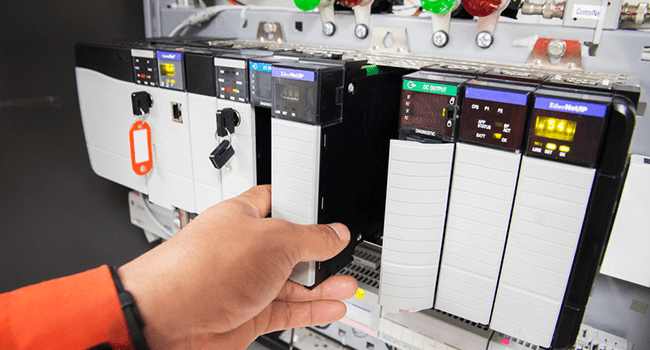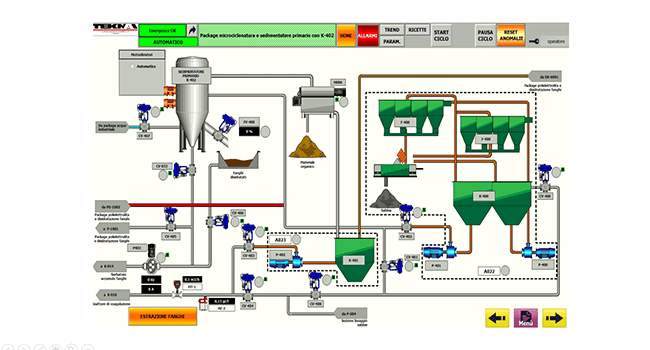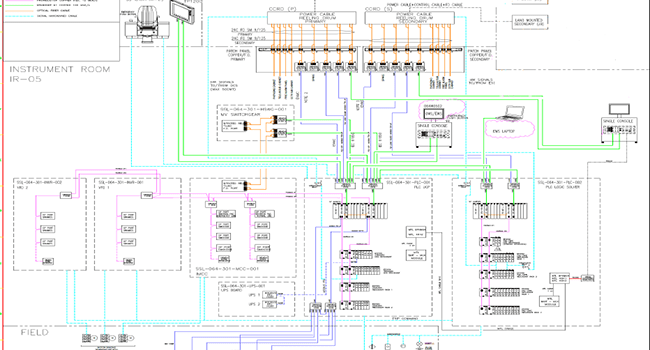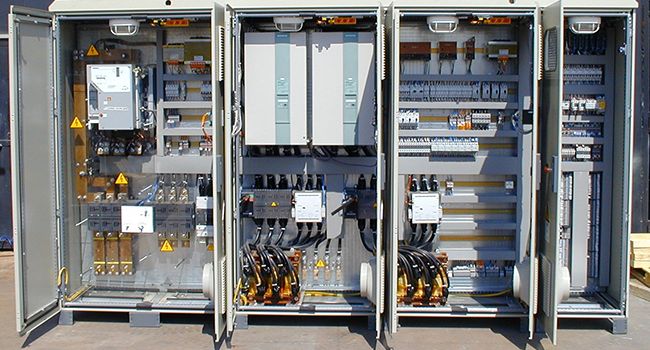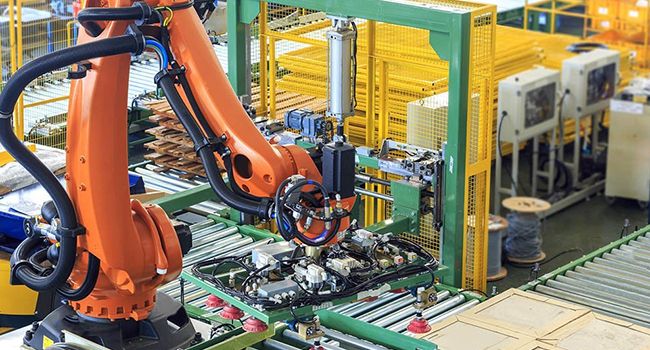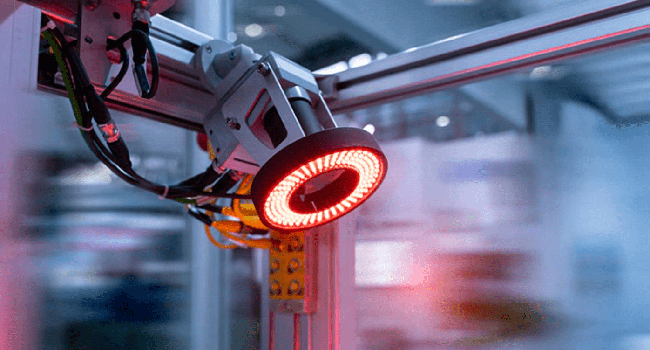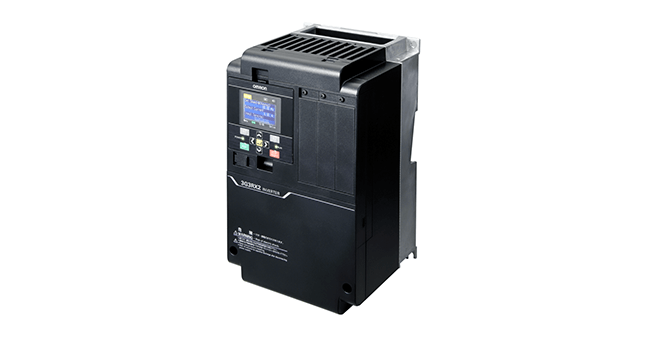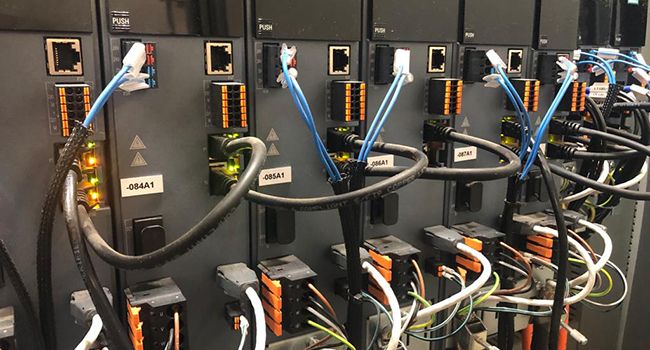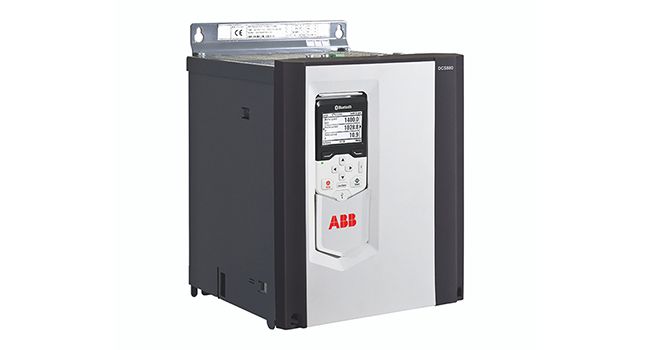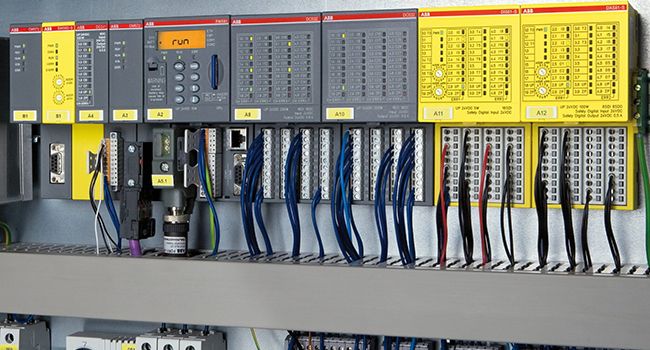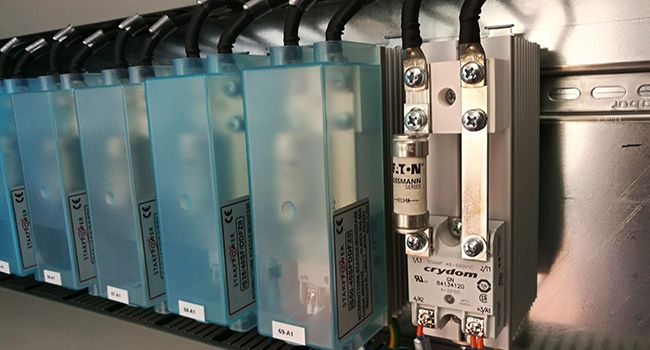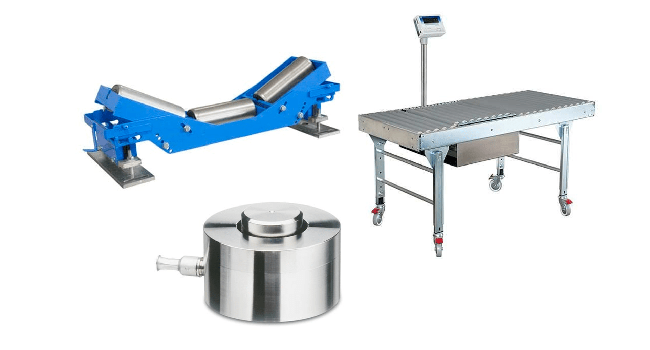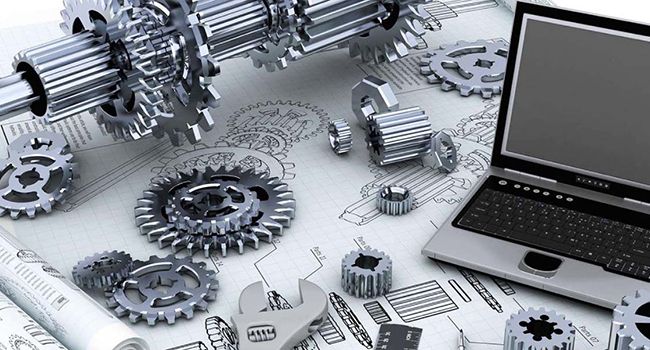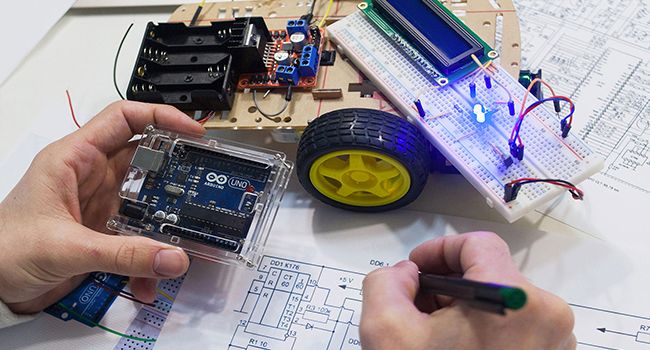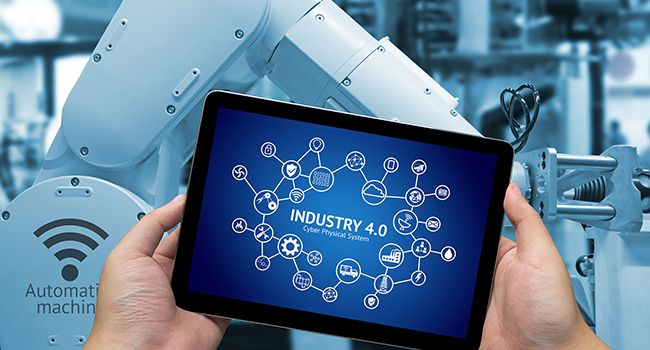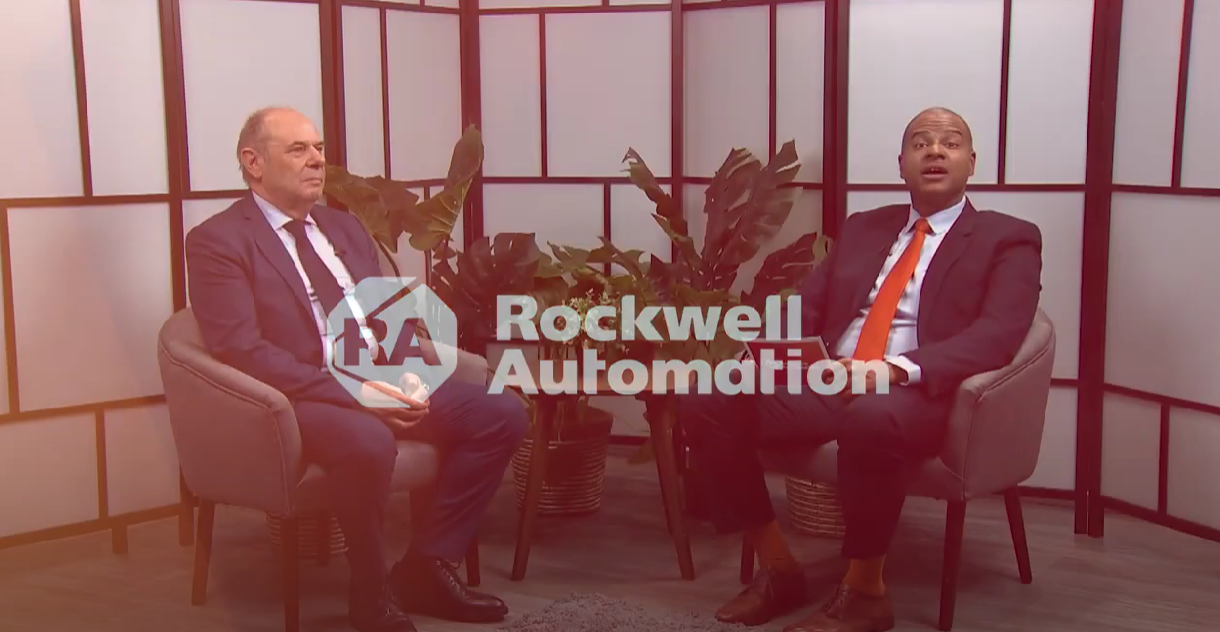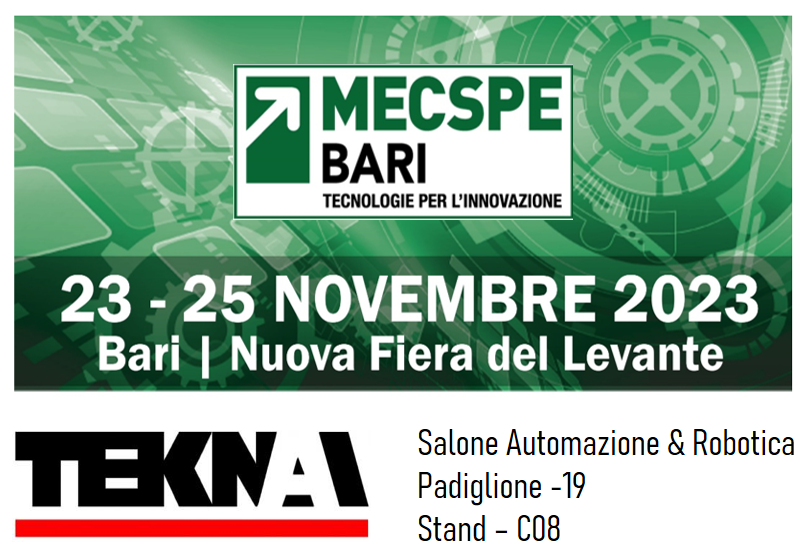Tekna is proud to support the Prevention Day dedicated to the fight against breast cancer, which will take place on Sund
Our technologies
Improving and optimizing Industrial Automation is never simple.
That is why technology is essential to meet the business and productivity needs of plants.
The range of technological solutions that we provide to our customers in different sectors is extremely wide. We work for the innovation, always suggesting advanced technologies and projects that can successfully drive the companies.
The P.L.C. (Programmable Logic Controller) is one of the main components for industrial automation. It’s a modular industrial equipment that must be configured and programmed for the application.
In addition, the P.L.C. allows the integration of the machine and the plant within complex automation structures and it is one of the prerequisites to get incentives provided for the Industry 4.0 plan.
Many P.L.C brands are available on the market (Siemens, Rockwell, Schneider, Omron, etc.), which Tekna Automazione e Controllo can program and integrate into automation systems in order to meet specific customer needs.
Running an automated plant requires a Human Machine Interface (HMI), an operator interface that the operator can use to supervise the plant activities and request different processes.
This is achieved by implementing a specific Plant Supervision System based on Personal Computers, Panel PCs and Operator Panels which allows the plant layout and P&I, statuses, alarms and data to be displayed in real time. Tekna Automazione e Controllo provide supervisory systems using the main SCADA (Supervisory Control and Data Acquisition) software packages available on the market, such as Siemens TI Portal, Rockwell RS Studio, Omron, Movicon, Wonderware Aveva System Platform, InTouch Genesis, IFIX General Electric interfacing them to the P.L.C. and the Automation elements of the plant.
Data transmission in industrial environments and network management requires the use of high-performance managed switches capable of handling protocols in multi-layer network architectures for layer 2 access, layer 3 routing with advanced diagnostics (port diagnostic, packet diagnostic…) and redundancy and security functions (IEEE 802.1X, Broadcast/Multicast/Unicast).
Standard protocols handled are Ethernet TCP/IP, Modbus, VRRP, RSTP, HTTPS, TFTP, SNMP, BOOTP, GMRP, DCP, LLDP, IGMP (Snooping/Querier)
The physical supports of the networks are made of copper or fiber, single-mode or multi-mode with star or ring structures.
Automation Panels are designed to contain within them all the power and control equipment of the system to be automated. The design of the automation panels must meet the requirements to guarantee the functionality, maintainability and safety of machines and operators in accordance with the CEI 17.13/1 regulation, CE mark, EMF disturbances requested by the country and sector of application. Within the automation panel, the P.L.C., inverters, axis controls, safety systems and whatever is necessary to ensure the functionality of the line or machine are assembled and wired.
The application of robots in automated production lines enables to reach flexibility goals comparable only to those in which human labor is used. Flexibility added to increased productivity and applicability in environments dangerous for the operators, makes robots now irreplaceable in many manufacturing sectors. The design, programming and commissioning of robotic islands with Anthropomorphic Robots, Collaborative Robots, SCARA, Parallel (Delta) or Cartesian Robots allows Tekna Automation and Control to be an ideal partner for the complete Automation of highly integrated production lines.
The industrial vision system includes all applications that use cameras, intelligent sensors and software algorithms to capture real images and process them in order to provide the production line with information needed for automation or quality control. The system ensures the highest production efficiency and quality by being able to make 100% objective and repetitive visual inspection with no error margin
Tekna Automazione e Controllo can design, install and program vision systems suitable for different customer requirements, identifying the best solution between 2D, 3D, monochrome or color vision. 1D and 2D readers, matrix cameras, linear cameras, profilometers and more are the most popular options on the market for developing vision machine applications.
Inverters are power equipment used to regulate the speed of asynchronous motors. Speed variation is achieved by varying the motor drive voltage and the frequency maintaining the V/f ratio constant over the entire speed range of the motor. The application range of inverters is very wide starting from simple speed regulation of conveyor belts to speed regulation of fans, flow control of pumps, lifting systems control and synchronization of motors. Inverters are available for powers from a few kW up to thousands of kW and integrate network and diagnostic capabilities to better control performance and increase productivity; the inverter is sized according to the motor power and application. Tekna Automazione e Controllo applies and integrates inverters from the world’s leading manufacturers within Automation systems.
Industrial Automation involves the control of motion aspects (acceleration, speed, position) of machines characterized by moving parts and variable speed electric drive that is an fundamental component in Automation. When high feed rates, large accelerations, high positioning accuracy are required, it is necessary to implement motion control with electric axes using brushless motors (low inertia and high performance) and high performance motors. The knowledge and use of specialized standard equipment for axis control, positioners and motion synchronization enables Tekna Automazione e Controllo to provide its customers innovative, cost-effective and easily maintained application solutions.
D.C. motor drives for driving and speed regulation are still widely used in industry, particularly for high power in metallurgy, hoisting machinery, mining and printing sector, although the current trend is to replace them with inverters and alternating current motors. Replacement requires significant shutdowns and modernization of the mechanical part as well, with major investments that are not always sustainable by all customers. The alternative is to use the same DC motor and replace the drive with a new generation one. Tekna Automazione e Controllo, thanks to its 30 years of experience in the application of variable speed on DC motors, is the right partner for upgrade, extraordinary maintenance and revamping activities of applications using DC motors.
Machine safety is a complex, sensitive and expensive topic. The European Machinery Directive, international standards, and machine safety in SIL2 and SIL3 classes require highly specialized knowledge. Safe design of Machine Automation involves the use of specialized safety equipment, relè and PLCs, which protect both machinery and operators. Typical functions include starting controlled after a pause, stopping movements when the operator requires access to dangerous areas of the machine ensuring operator safety, as well as monitoring moving guards and stopping movements, shutting down and stopping in emergencies.
Temperature control is needed in many industrial manufacturing processes, such as furnaces, injection, blow molding and extrusion of plastics, metal production, chemical, pharmaceutical and other processes. The control is achieved by implementing control loops on board temperature controllers or on board P.L.C.s and proportionally driving heating elements, whether electric heaters, gas burners or others.
Weighing is required in Industrial Automation, both to account the quantity of materials and to check for overload conditions. Weighing is done using load cells mounted on board conveyors or machine parts which, acquired by electronic control units, provide the weight to which they are subjected. There are numerous types of load cells with specialized for the application.
Industrial weighing is crucial in processes for dosing and batching (pharmaceutical, food, steel, etc.), for calculating product weights and quantizing transported products, for calculating mechanical overloads, etc.
Tekna Automazione e Controllo has gained experience and expertise in studying how the mechanical devices of interest work. Through study and design it is able to realize mechanisms capable of producing more or less complex movements and operations
Thanks to its experience and a team of highly specialized employers, Tekna Automation and Control is able to realize mechatronic systems where mechanics, electronics and information technology interact between each other in order to make the production systems automatic, simplifying and replacing human labor. All stages from design to installation and maintenance can be provided according to the specific needs of the customer.
It indicates a trend in Industrial Automation that integrates some new production technologies to improve working conditions and increase the productivity and production quality of plants. Industry 4.0 assumes that new production technologies collaborate with all the production elements required i.e., collaboration between operator, machines and tools by using IT and technical structures that allow systems integration. In addition, Industry 4.0 turns its attention to sustainable energy sources as an energy supply to make systems work. Tekna Automazione e Controllo supports industries and enterprises towards the transition to technological and production transformation processes.
NEWS & EVENTI
Our interview for Rockwell at the Rockwell Automation Fair in Boston (USA)
During the ROCKWELL AUTOMATION FAIR event held in BOSTON we were interviewed by Mr Stan Miller, EMEA PUBLIC & ANALYS
MECSPE Bari 2023
We are pleased to have participated in MECSPE Bari, from November 23 to 25, 2023, at the Nuova Fiera del Levante. On thi

Logo












































